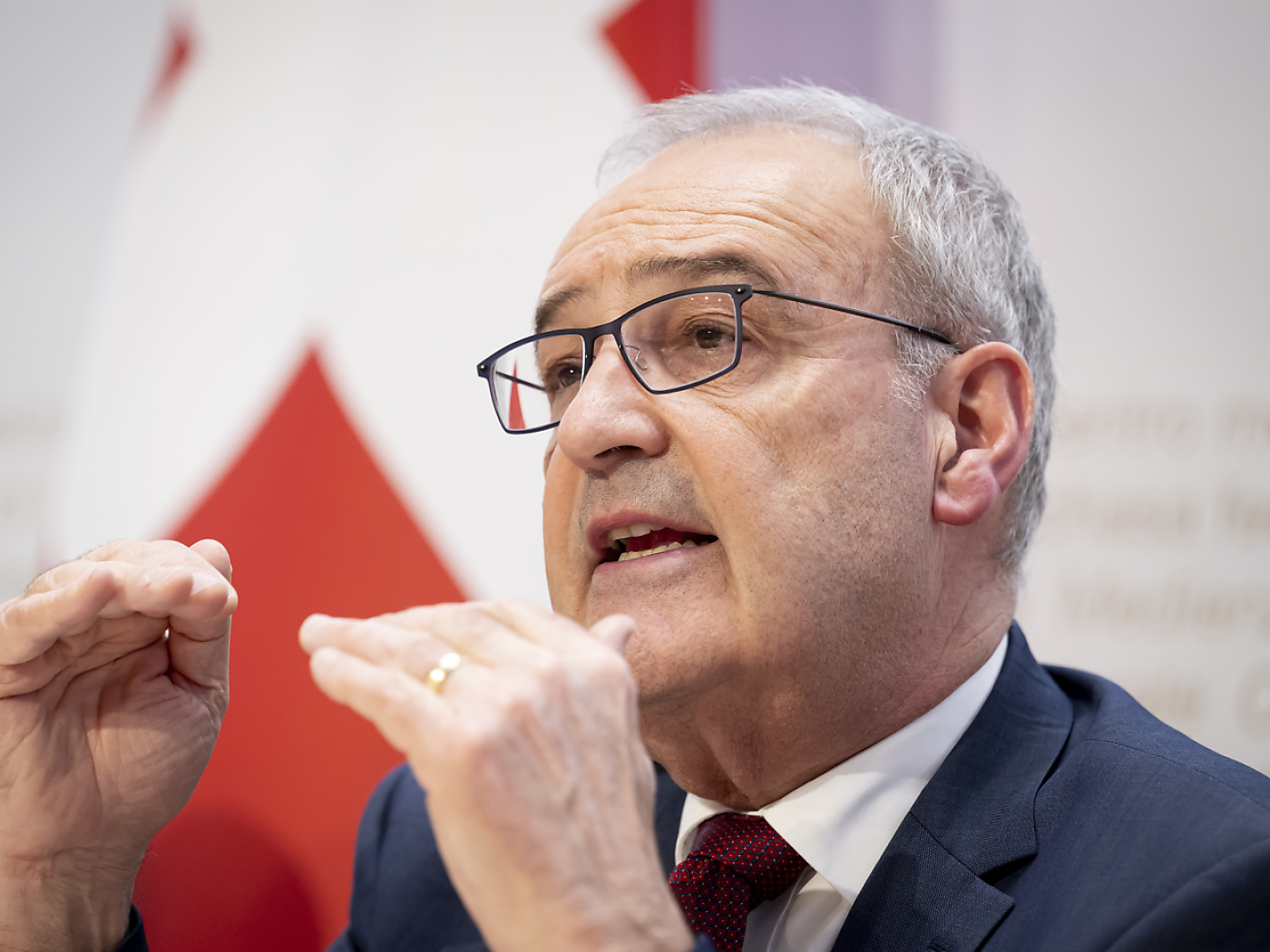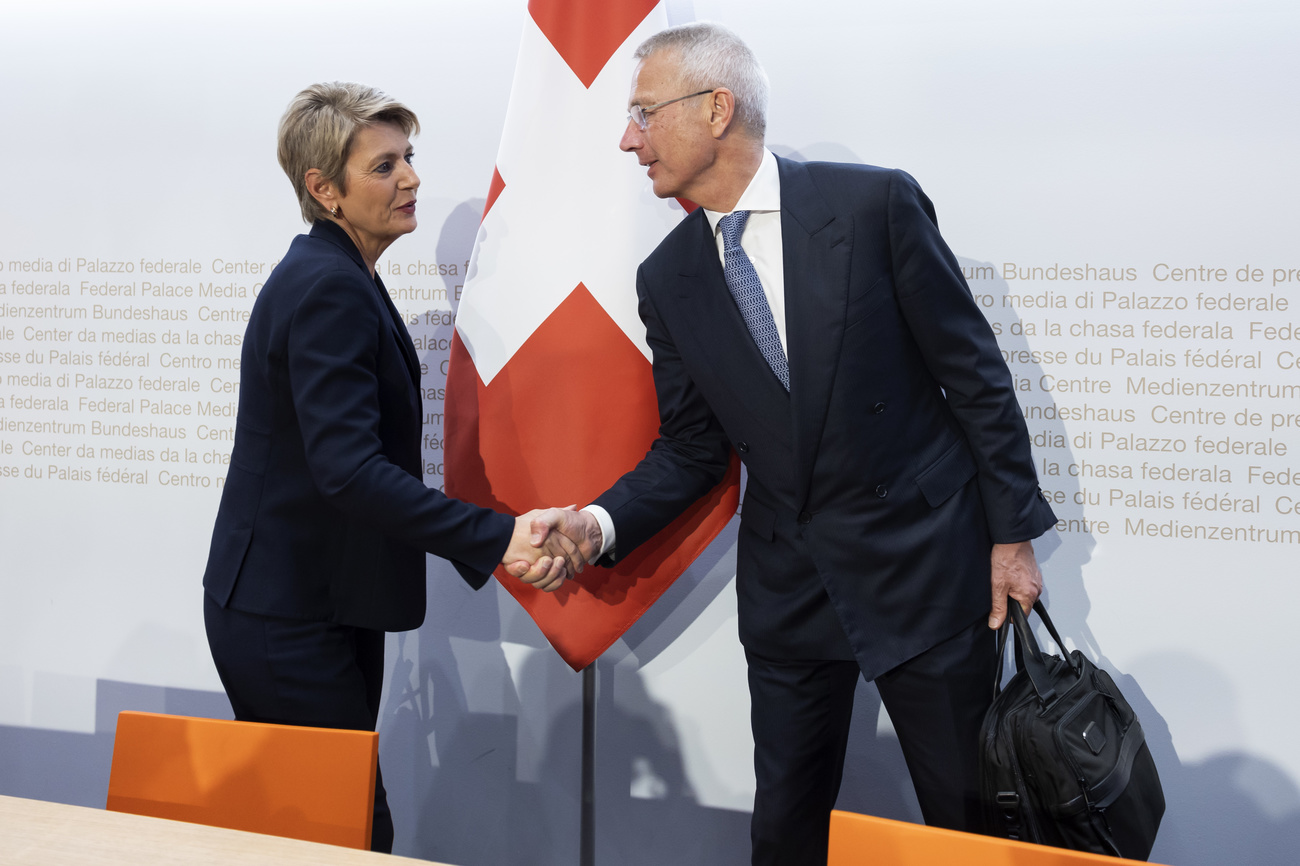UBS weighs options to reopen Apollo deal for Credit Suisse’s SPG

UBS Group AG executives are weighing options to renegotiate parts of a deal Credit Suisse struck for its securitized products business, shortly before the troubled lender was acquired in an emergency takeover by its larger rival.
UBS isn’t happy with the terms Credit Suisse agreed to when it sold large parts of the business to Apollo Global Management Inc., according to people familiar with the matter. Executives are particularly concerned about fees Credit Suisse agreed to pay Apollo to manage assets that remained on its books, and could try to renegotiate those, the people said.
No decisions have been made whether the lender will seek formal talks with Apollo, which would likely have to consent to a reopening of the deal, the people said, asking not to be identified as the matter is private. Representatives for UBS and Apollo declined to comment.
+Troubled Swiss banking sector sees drop in profits
Credit Suisse agreed to sell the business, known as SPG, in an ultimately unsuccessful, last-ditch effort to win back investor confidence. As part of the November deal, Apollo took over a large part of the assets that the business oversaw. Credit Suisse was expected to provide financing for some of the assets and keep about $20 billion (CHF17.7 billion) of them, which Apollo would manage for a fee.
The transaction was scheduled to be completed in the first half of this year, and a “substantial first close” was already announced in February. The following month, UBS agreed to buy Credit Suisse in a government-brokered rescue.
+ UBS smashes banking record as it absorbs Credit Suisse
Apollo is known for being one of the most savvy negotiators in global finance, often picking up debt and other assets at steep discounts from sellers that are forced to dispose of them.
Credit Suisse paid Apollo hundreds of millions of dollars in fees upfront as part of the deal, according to one of the people. UBS is considering all its options in part because it distributes Apollo funds to its clients, a person familiar said.
Disposing of SPG was a key tenet of Credit Suisse’s pledge to exit businesses that were not directly related to its wealth management unit. When it first announced the rough outlines of the deal, it was under pressure to meet an October 27 deadline to present a restructuring strategy that would put to bed concerns about its viability.
That made it difficult for Credit Suisse to walk away when the time came to hammer out the details of the transaction. In the end, it booked an $800 million gain on the sale of a business that by one external estimate generated $20 billion of revenue over the past decade.
At the same time, Credit Suisse was on the hook for an undisclosed amount to finance parts of the assets and pay for management fees. Analysts criticized the deal announcement at the time, saying it didn’t provide enough details.
The securitized products group bought and sold securities backed by pools of mortgages and other assets, such as car loans or credit-card debt. It traced its roots back to Wall Street’s raucous mortgage-bond scene in the 1980s. New York-based trader Jay Kim, who led the SPG, joined Apollo as part of the deal.
With assistance from Myriam Balezou and Allison McNeely.
©2023 Bloomberg L.P.
This news story has been written and carefully fact-checked by an external editorial team. At SWI swissinfo.ch we select the most relevant news for an international audience and use automatic translation tools such as DeepL to translate it into English. Providing you with automatically translated news gives us the time to write more in-depth articles. You can find them here.

In compliance with the JTI standards
More: SWI swissinfo.ch certified by the Journalism Trust Initiative






















You can find an overview of ongoing debates with our journalists here . Please join us!
If you want to start a conversation about a topic raised in this article or want to report factual errors, email us at english@swissinfo.ch.